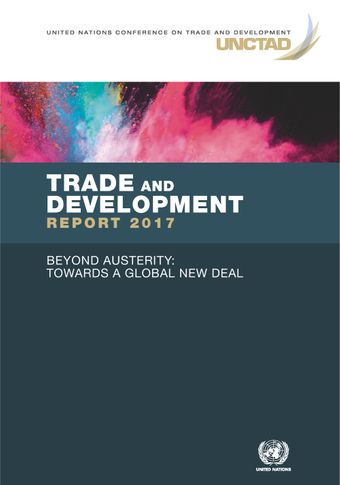Market power and inequality: The revenge of the rentiers

- Author: United Nations Conference on Trade and Development
- Main Title: Trade and Development Report 2017 , pp 119-145
- Publication Date: September 2017
- DOI: https://doi.org/10.18356/584caae1-en
- Language: English
The changing international division of labour, economic policy choices, political decisions and new technologies all help to explain persistently rising patterns of asset and income inequality under hyperglobalization since the early 1980s. However, achieving a more inclusive growth performance at the global level also requires an explicit understanding of how these inequalities have been nurtured by growing imbalances of economic power. The previous chapter has looked at such imbalances in relation to financialization dynamics; this chapter examines some systemic shifts in power relations between core economic actors in the non-financial corporate sector. It is based on the understanding that “institutions matter, a lot” (The Economist, 2013), and that “rebalancing power” (Atkinson, 2015: 99) is essential for achieving sustainable and inclusive prosperity at both national and international levels. In particular, it examines how the continuous deregulation of labour, product and financial markets has given rise to structural shifts in power relations between labour and capital in developed economies, and between States and large corporations at the global level.
-
From This Site
/content/books/9789213622452c021dcterms_title,dcterms_subject,pub_keyword-contentType:Journal -contentType:Contributor -contentType:Concept -contentType:Institution105



